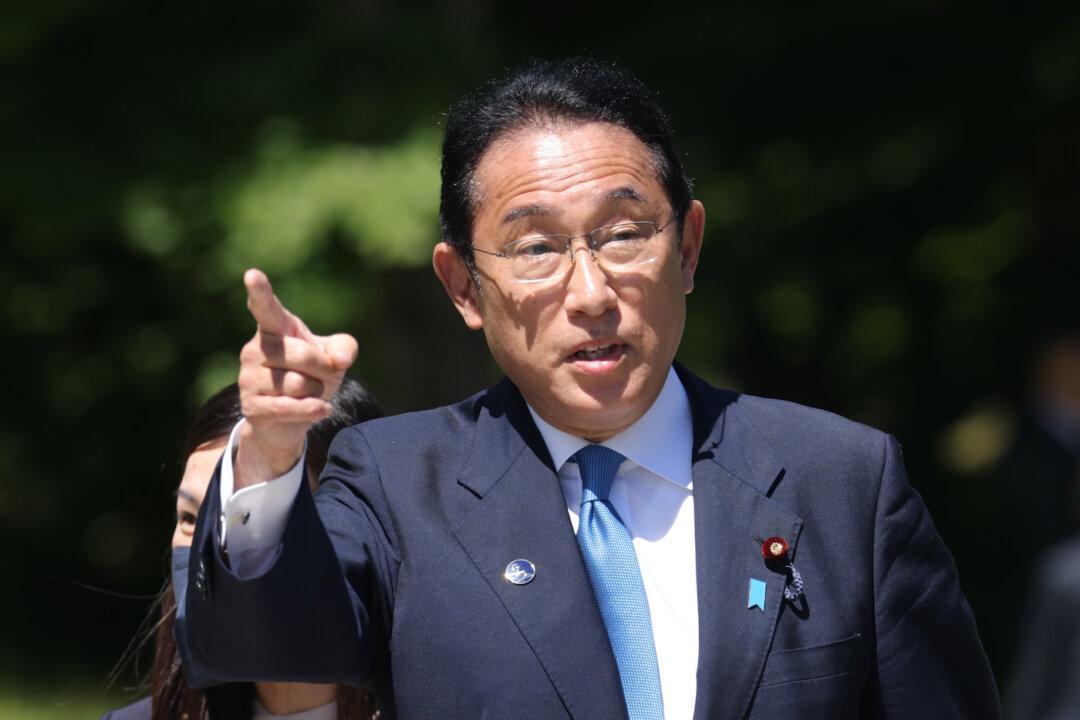Japan’s prime minister said on Sunday that he would consider downgrading the classification of COVID-19, which would result in the disease being treated more like a seasonal flu-like condition.
The Chinese Communist Party (CCP) virus—commonly known as the novel coronavirus—is currently classified in Japan as Category Two disease—the second-highest on a five-tier scale of severity of infectious diseases, as the country faces its seventh wave of infections.





